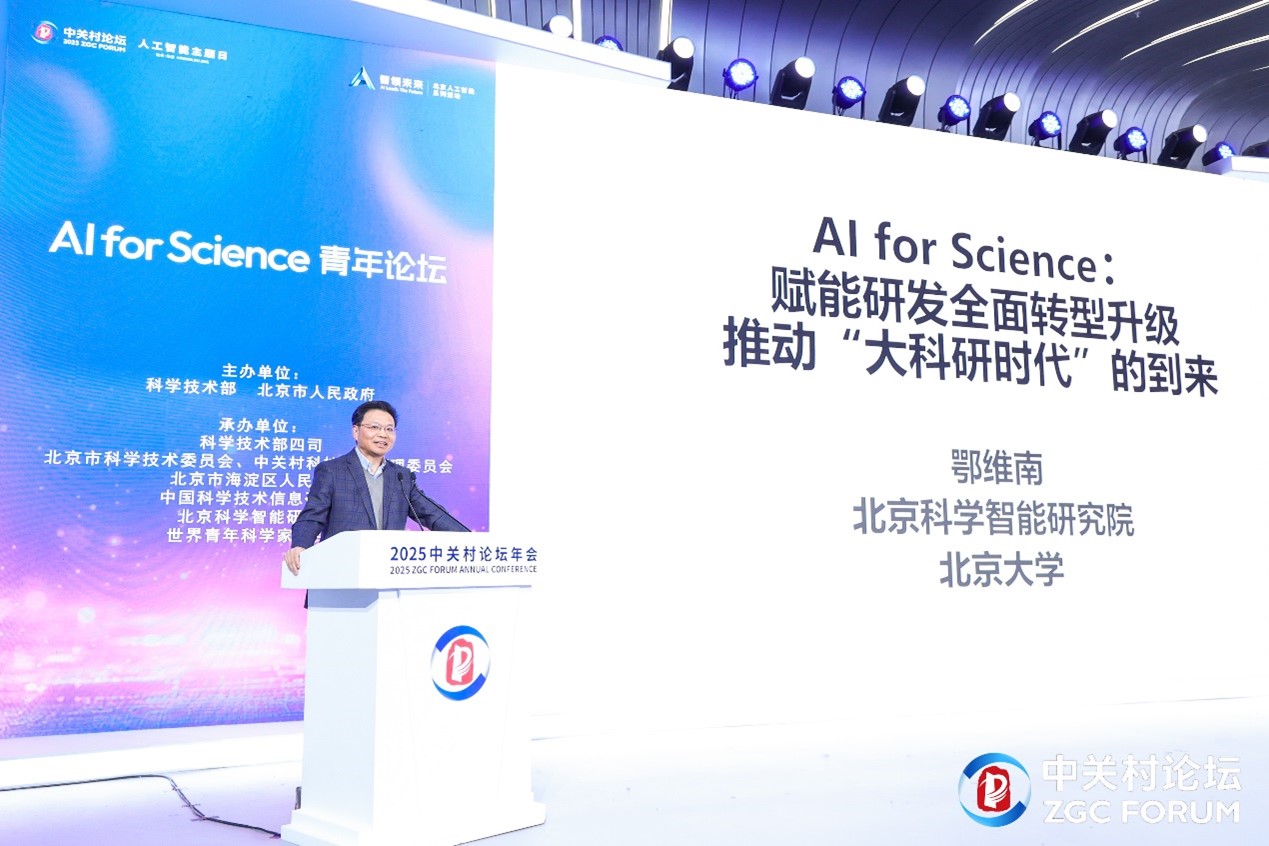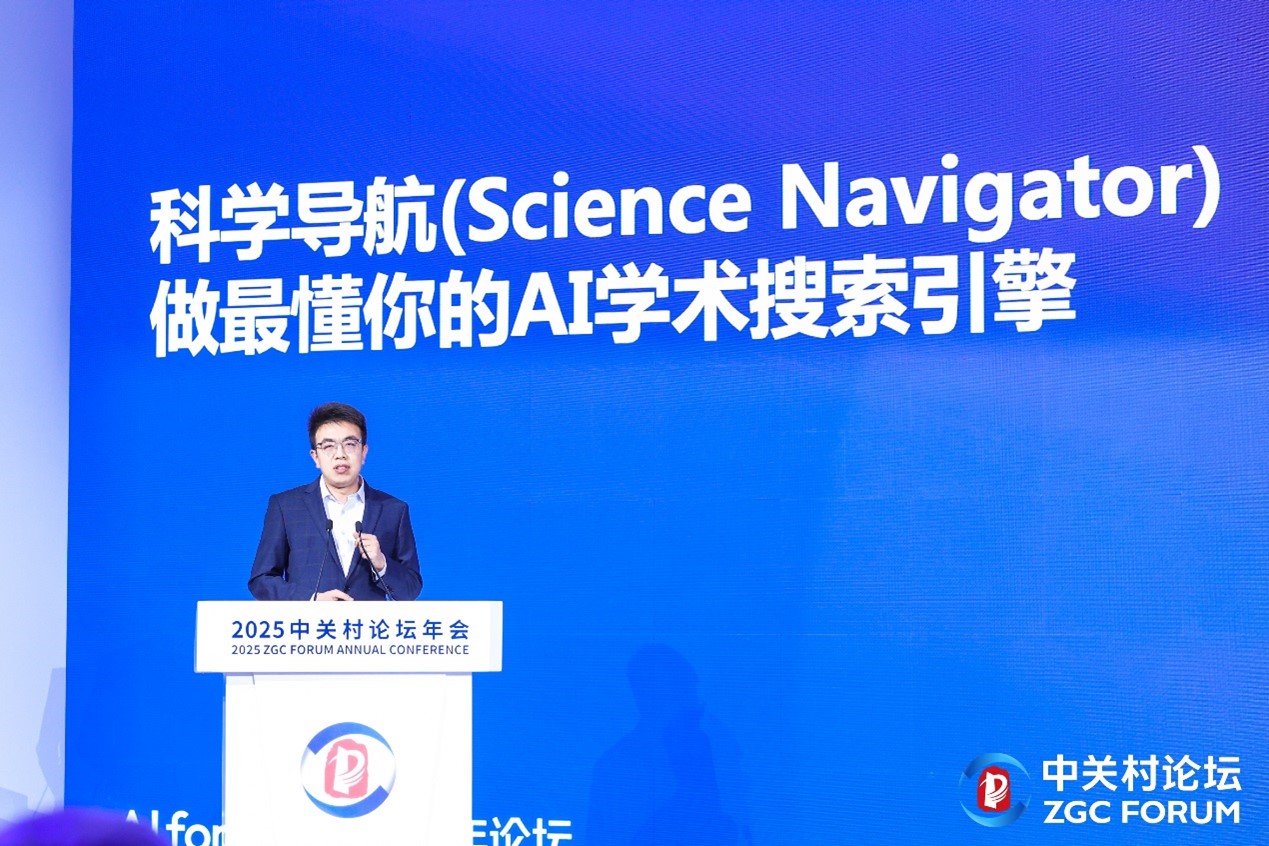AI for Science Youth Forum held in Beijing


The AI for Science Youth Forum, part of the 2025 Zhongguancun Forum Annual Conference, was held in Beijing on March 29, 2025. As one of the organizing institutions, the World Association of Young Scientists (WAYS) has contributed to bringing together young scientists to showcase their latest research achievements in the field of AI for Science and discuss cutting-edge trends and the future development of AI’s deep integration with scientific research.

E Weinan, an academician of the Chinese Academy of Sciences, delivers a speech at the forum. [Photo/ZGC Forum]
During the keynote speech, E Weinan, an academician of the Chinese Academy of Sciences, provided an insightful analysis of the development trajectory of AI for Science. He emphasized that the transformation and upgrading of scientific research can effectively break down barriers between disciplines, bridge the gap between theory and experiment, and enhance the connection between research and industry, allowing for greater exploration and efficiency. “To achieve this, we must establish research infrastructure around databases, literature tools, theoretical models, and experimental tools to foster a new model of scientific collaboration,” he stated. He also highlighted the outstanding contributions of young talents in the field. “Achieving this goal requires an interdisciplinary and highly capable research talent pipeline, and outstanding young researchers are exactly what we need.”

Li Xinyu, vice president of the AI for Science Institute in Beijing, delivers a speech at the forum. [Photo/ZGC Forum]
At the forum, the enhanced Science Navigator, a next-generation open platform for research knowledge and literature, was showcased. Covering over 160 million academic papers worldwide, it enables natural language-based literature searches and facilitates integrated management of research and experimental data, improving search and management efficiency nearly a hundredfold. Li Xinyu, vice president of the AI for Science Institute in Beijing, noted that Science Navigator supports multimodal research queries. For example, users can paste a molecular formula, and the system will accurately recognize it and retrieve related papers. Researchers can also build academic profiles and AI-powered assistants to engage in discussions with global scholars. During an exclusive interview with WAYS, Li said: “Science has no borders. As long as we maintain an open mindset, international exchanges come naturally. Forums like the Zhongguancun Forum provide an excellent platform for facilitating academic dialogue and collaboration among scientists worldwide.”
To further inspire young students in the intersection of AI and science, the forum also featured an award ceremony for the AI4S TEEN CUP competition. Gold medalists and outstanding contributors, including students and their mentors, were honored for their achievements in AI-driven scientific research.